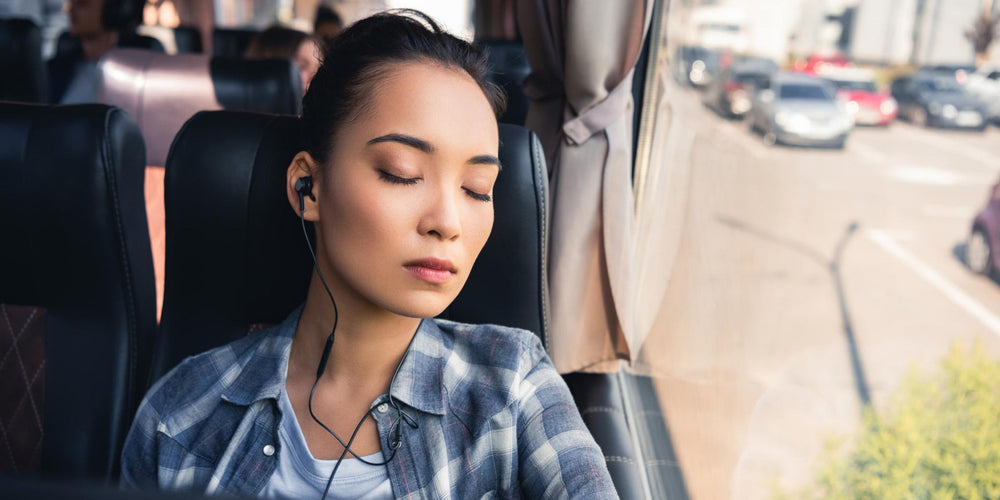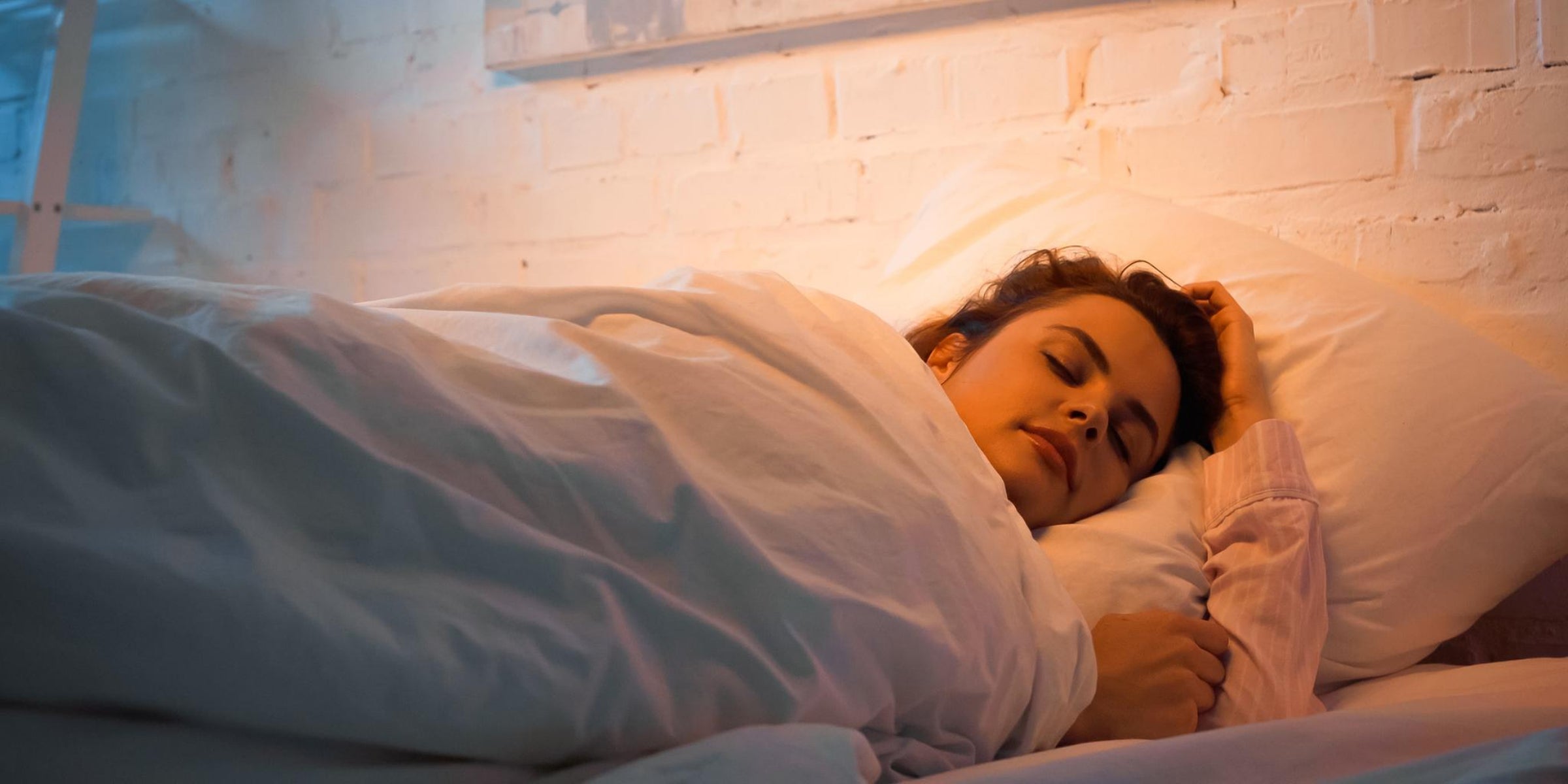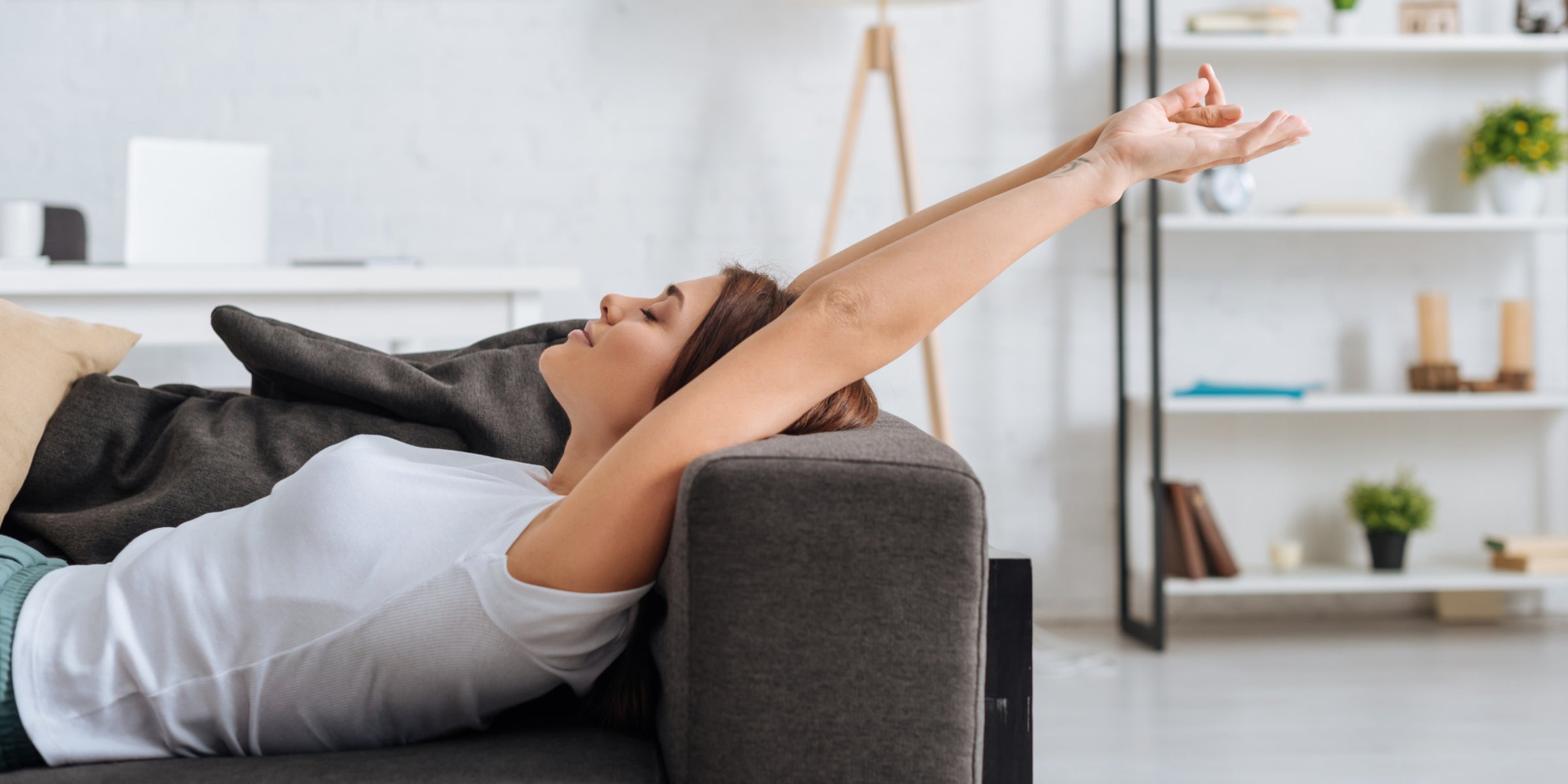On-the-Go Eye Care: 5 Tips to Sleep Well While Traveling

Stay tuned to our latest news
Traveling offers an exhilarating experience, filled with new adventures and unforgettable memories. Whether embarking on a cross-country road trip or going sightseeing in a far-flung destination, one thing that often gets compromised during travel is sleep.
As we hop from one time zone to another or spend hours on end in transit, our sleep patterns can be disrupted, leaving us feeling groggy and fatigued. However, it doesn't have to be that way. With a little extra care and attention to your eye health, you can ensure a restful and rejuvenating sleep while on the go. Let’s talk about five practical tips to help you sleep well while traveling and take care of your eyes in the process.
Why Is It Important to Have Quality Sleep While Traveling?

Ensuring quality sleep while traveling is crucial for several reasons. Firstly, during travel, both our bodies and minds undergo physical and mental exertion. Whether it's exploring new places, dealing with time zone changes, or navigating unfamiliar terrain, our bodies need adequate rest to recover. Quality sleep rejuvenates our energy levels, enabling us to fully enjoy our travel experiences and make the most of our trips.
Secondly, crossing time zones can disrupt our body's internal clock, resulting in jet lag. Symptoms of jet lag may include fatigue, difficulty concentrating, irritability, and disturbed sleep patterns. By prioritizing quality sleep, we can minimize the effects of jet lag, helping our bodies adjust to new time zones more efficiently.
Furthermore, sleep plays a vital role in cognitive function, memory consolidation, and learning. Adequate sleep allows our brains to process and consolidate the information and experiences acquired throughout the day, thereby enhancing memory, attention span, and overall cognitive performance. By getting sufficient sleep while traveling, we enhance our ability to absorb and retain new travel experiences.
In addition, traveling exposes us to new environments, climates, and potential pathogens. A strong immune system is crucial for staying healthy while on the go. Sleep is closely linked to immune function, and lack of quality sleep can weaken our immune system, making us more susceptible to illnesses. By prioritizing quality sleep, we can support our immune system and reduce the risk of falling sick during our travels.
Lastly, travel often involves extended screen time, reading in dimly lit environments, and exposure to dry and dusty conditions. These factors can strain our eyes, leading to dryness, fatigue, and discomfort. Quality sleep promotes healthy eye function and reduces the risk of eye fatigue and irritation. It allows our eyes to rest and recover from prolonged screen time, reducing the likelihood of developing eye-related issues.
How Does Poor Sleep Impact Your Overall Well-Being?

Poor sleep can have a significant impact on your overall well-being. Regarding physical health, inadequate sleep increases the risk of developing conditions such as obesity, diabetes, cardiovascular diseases, and weakened immune function. It also hampers the body's ability to repair and regenerate cells, leading to a decline in overall physical health.
Mental health is closely linked to sleep, and poor sleep can contribute to the development or worsening of mental health issues such as anxiety and depression. It can result in mood swings, irritability, difficulty concentrating, and impaired cognitive function. Getting sufficient sleep is crucial for maintaining good mental health and emotional well-being.
Inadequate sleep also affects energy levels and productivity. When you don't get enough sleep, you feel tired, lethargic, and lacking in energy. This impairs your ability to focus, make decisions, and perform tasks efficiently, leading to decreased productivity and performance levels.
Sleep plays a vital role in memory consolidation and learning. Insufficient sleep can impair your ability to retain information, learn new skills, and recall memories effectively. It hampers cognitive processes, making it harder to concentrate, retain information, and perform well academically or professionally.
Emotional well-being is also impacted by poor sleep. Sleep deprivation can make you more emotionally reactive, amplifying negative emotions and increasing feelings of stress. It reduces your ability to cope with everyday challenges and can lead to emotional instability.
Lack of sleep compromises safety and alertness. It impairs judgment, coordination, and decision-making abilities, increasing the risk of accidents and injuries. Whether driving, operating machinery, or performing tasks requiring concentration, poor sleep can have serious consequences.
What Happens If You Lack Sleep While Traveling?
When it comes to travelling, a lack of sleep can have serious consequences on our physical, mental, and emotional health. The physical effects of sleep deprivation during travel can be quite severe. Firstly, it weakens our immune system, making us more susceptible to illnesses. This is especially concerning when travelling, as we often encounter new environments and germs to which our bodies are not accustomed. Additionally, sleep deprivation can lead to increased inflammation in the body, which increases the risk of cardiovascular diseases.
Moreover, disrupted sleep can impair our thinking and cognitive abilities. When we lack sleep, our brain's ability to process and store information is compromised. This can result in difficulty concentrating, poor memory retention, and decreased problem-solving skills. Furthermore, sleep deprivation can cause excessive drowsiness and irritability, making it difficult to fully enjoy our travel experiences.
Beyond the immediate effects, chronic sleep loss and circadian disruption can have long-term consequences for our health. Research has shown that individuals who consistently lack sleep are at a higher risk of developing heart disease, obesity, diabetes, and certain cancers. Furthermore, the emotional toll of sleep deprivation can lead to feelings of depression and anxiety.
How Can Travel Disrupt Your Sleep?

Traveling can often disrupt our usual sleep patterns and quality of sleep. One common sleep disturbance associated with travel is jet lag. Crossing time zones can cause our internal body clock, or circadian rhythm, to become misaligned with the local time at our destination. This misalignment can result in difficulty falling asleep at the appropriate local time and feeling groggy and fatigued during the day.
Another factor that can disrupt sleep during travel is unfamiliar sleeping environments. Whether it's staying in a hotel, camping, or sleeping in a different bed than our own, being in an unfamiliar setting can make it harder to relax and fall asleep. Various factors such as noise levels, lighting, and comfort levels can all contribute to a disrupted sleep pattern.
Moreover, changes in daily routines while traveling can also disrupt our sleep. We may engage in different activities or consume different foods, which can affect our body's natural sleep-wake cycle. Additionally, the stress and excitement of traveling can also make it harder to fall asleep and stay asleep.
The potential consequences of disrupted sleep during travel can be detrimental. Sleep deprivation can lead to decreased cognitive function, impaired concentration, and memory problems. It can also lead to irritability and mood disturbances, making travel less enjoyable for everyone. Furthermore, disrupted sleep increases the risk of accidents, as reaction times are slower, and judgment may be impaired.
5 Tips to Sleep Well While Traveling

Getting a good night's sleep while travelling can be a challenge, especially when you're in an unfamiliar environment. However, there are several tips that can help ensure you get a restful night's sleep while on the go.
- Adjust Your Bedtime Before You Go: Adjusting your bedtime before travel is crucial for minimizing the effects of jet lag and adapting to a new time zone. When traveling East, gradually shift your bedtime earlier each night, and when traveling West, delay your bedtime gradually. This helps your body adjust to the new time zone, ensuring a smoother transition.
- Eat and Drink Moderately While on Board: Eat and drink moderately during air travel to maintain comfort. Avoid overeating and opt for balanced meals with appropriate portion sizes. Limit caffeine and alcohol intake to prevent dehydration and potential discomfort. Refrain from consuming alcohol if you plan to rest during the flight.
- Act Like a Local After You Land: Immersing yourself in the local culture by adopting local eating and sleeping habits enhances your travel experience. It provides an opportunity to experience authentic flavors, learn about customs, and gain a deeper understanding of the destination.
- Invest in Sleep Accessories: Investing in sleep accessories can greatly improve sleep quality while traveling. Essential accessories include a compact travel pillow, sleep mask, earplugs or noise-canceling headphones, comfortable clothing, and a white noise machine or app. These items create a conducive sleep environment and promote restful sleep.
- Play Some Music: To enjoy music while traveling, choose a music source such as a streaming app. Explore genres, search for specific songs, or create personalized playlists. Use pre-made playlists or music players on your device as alternatives. Accessing and selecting music adds a delightful soundtrack to your journey.
Takeaway
Traveling can be exhilarating but compromises sleep. Quality sleep while traveling is important for physical and mental recovery, minimizing jet lag, improving cognition, supporting the immune system, and maintaining eye health. Poor sleep impacts overall well-being, affecting physical health, mental health, energy levels, productivity, memory, and emotional stability. Lack of sleep while traveling weakens the immune system, impairs cognitive function, and hampers enjoyment. Travel disrupts sleep through jet lag, unfamiliar environments, routine changes, and stress.
By prioritizing quality sleep while traveling, you can ensure a restful and rejuvenating experience while taking care of your overall well-being. Remember, sleep plays a vital role in maximizing your enjoyment of new destinations, maintaining your physical and mental health, and creating lasting memories. So, follow these tips and make sleep a priority during your travels. Bon voyage and sweet dreams!
Renpho Health Tips
-

The Power of Pause: Why Your Busy Life Needs Intentional Breaks
April 4, 2024
Read more >
-

Best Spa-Like Eye Massager? RENPHO EyeSnooze Aroma vs. RENPHO Eye Spa Pods
April 3, 2024
Read more >
-

Is Managing Work and Life Stress a Balancing Act?
April 2, 2024
Read more >
-

Lucid Dreaming for Better Sleep: Techniques and Tips
April 2, 2024
Read more >
-

Unwind Your Mind: Kicking Off Stress Awareness Month with Mindful Practices
March 31, 2024
Read more >




